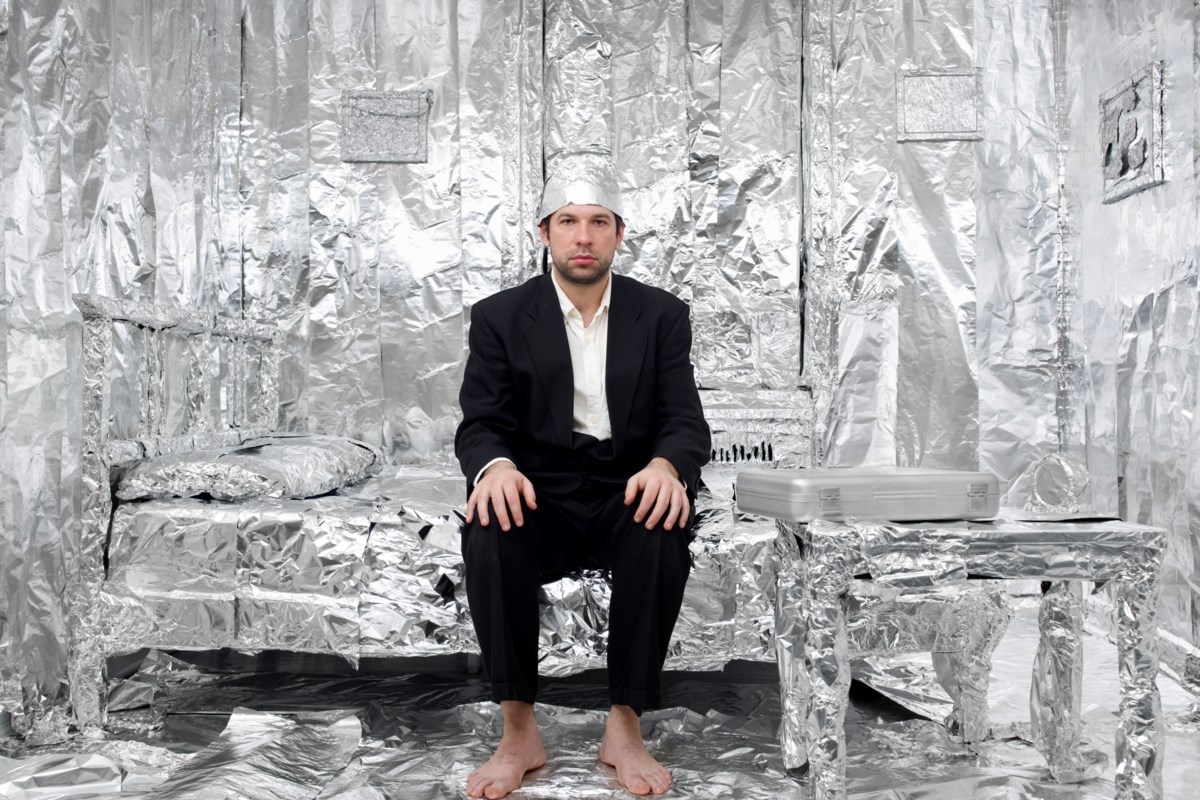Why are conspiracy theories getting more popular?

You’d think living in a super-connected world where people have all the world’s knowledge at their fingertips would make it impossible for conspiracy theories to take hold, and yet here we are—“freedom” protesters carrying signs in Vancouver proclaiming that the Russian invasion of Ukraine is a hoax.
That’s coming after two years of non-stop COVID conspiracy theories that one in 10 Canadians still believe even though thousands of them have been debunked.
For some reason a lot of Canadians, including apparently a few members of government, are also deep into QAnon—the American “deep state” conspiracy factory which has yet to make a correct prediction about anything.
Some of our countrymen and women are deeply suspicious of Bill C-10, which would apply the same broadcast standards for TV and radio to the internet, as well as the World Economic Forum’s “Great Reset” initiative to align industry players to tackle climate change. There are the people who believe the rediscovery of First Nations children buried at residential schools is a hoax. And at last week’s Toronto mandate protests I counted at least three “Trump Won” flags, which is an example of people using one conspiracy to sell another. The rabbit hole is getting deeper faster than we can fill it in.
The problem is that while the internet does contain an abundance of verifiable facts, the truth is relentlessly attacked, undermined and buried by a steady stream of lies, propaganda, misrepresentation, misinformation, and other bad-faith opinions crafted for what seems to be a growing audience.
There’s an old expression that “a lie can travel around the world and back before the truth can get its boots on” that probably predates the telegraph by a hundred years, and it’s never been more applicable. These days almost anyone can pollute the public discourse at literally the speed of light.
Social media also works too fast on too many fronts to keep up with every new conspiracy theory that’s crapped out by foreign interests, political hyper-partisans, paranoids with persecution complexes and/or delusions of grandeur, cynics looking to cash in on the gullibility of others, and the odd well-intentioned person who genuinely believes they’re on to something big.
And it works because a surprisingly large number of people aren’t nearly as skeptical of sketchy, unsourced or unproven conspiracies as they are of all the mostly good information provided by governments, the media, and once-trusted organizations and institutions. Why? Studies suggest that it’s largely because those conspiracies happen to line up with their personal and political beliefs and hurt the people they don’t like—the truth doesn’t matter if the lie works. If only those people were equally skeptical of all the information that comes their way, both good and bad, then we probably wouldn’t have a growing conspiracy problem.
Research into the psychology of conspiracy theories has found that the world is generally divided into rationalists and intuitionists—the latter of which tend to think they’re the rational ones even though they can be duped into believing just about anything.
There’s also the math to consider. Studies have shown that the majority of conspiracies are impossible given the number of people that would need to keep the secret over time. A dozen people have trouble keeping something secret for even a few years, while some of the more popular conspiracies going around would require the complicity of thousands, and sometimes even millions, of people.
That said, I will admit that sometimes I do enjoy a good conspiracy. The obsessive research and attention to detail that people put into their investigations of JFK’s assassination, the 9-11 terror attacks, US Air Force “UFO videos,” or the “faked” moon landings can be impressive. I even have a few conspiracies of my own: for example, I’m pretty sure the NBA adds squeaker noises to its broadcasts.
But as a rationalist, I always make a point of looking deeper and getting the other side of the story. Once a conspiracy reaches the point where it’s causing harm and can no longer be ignored, an army of debunkers will sweep in to tackle them head-on, point by fallacious point. Which is ridiculous—the onus should be on people spreading conspiracies to provide proof that they’re right, not on the people stuck with the job of proving them wrong.
Given the rise of conspiracy culture, we probably all know people—friends, relatives, coworkers—who have been caught up in some of these recent conspiracies. That begs the difficult question of what we should do about it—do you correct them? Send them the Snopes link and hope for the best, knowing they probably won’t A) believe you or B) thank you for it?
While it’s tempting to take the high road and let people believe whatever they want, it’s gone too far. More than 30,000 Canadians have died of COVID and continue to die every day. An armed QAnon believer drove onto the Prime Minister’s residence at Rideau Hall to conduct a citizen’s arrest. Asian Canadians are being assaulted on the street because of conspiracies about the “China virus.” Conspiracies aren’t harmless fun anymore.
Except for my NBA “squeaking sneaker” thing. Watch a broadcast yourself and tell me the squeaks match the action on the court.


